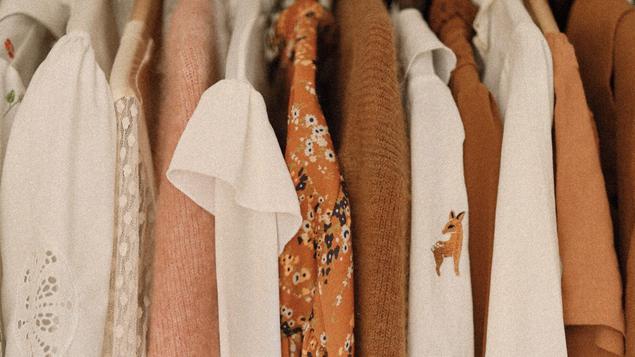Were you starting to worry about the misdeeds of fast food?It was without counting on those caused by the ultra fast-fashion that renews its collections every week.What anchor even more deeply in the collective unconscious the idea of a disposable fashion.
FAST-FASHION, already overwhelmed by ultra fast-fashion?
Comme vient de le relever un article du média de vulgarisation de recherches universitaires The Conversation, H&M et Zara combinés ont eu le temps de sortir 11 000 nouvelles références depuis le début de l’année 2022.And what can already seem dizzying on the part of these well-known mastodontes of fast food is nothing compared to what the ultra fast-fashion shein can do: almost 315,000 new products on the sameperiod.What consume a lot of natural, energetic and human resources to be made, and social damage and polluting waste ...
According to research directors at the Institute for Sustainable Futures of the University of Technology in Sydney (in Australia), Samantha Sharpe, Monique Retamal and Taylor Brydges, the fashion industry alone could consume a quarter of the"Budget" global carbon remaining if we want to maintain global warming below the additional 2 ° C by 2050 (yes because no one hopes to reverse the phenomenon or even stabilize it ...).By 2030, it would use 35% additional land to produce fibers used for raw materials.
We wear our clothes shorter when we produce 2 times more
In this acceleration to go straight to the ecocide wall, the production of clothes has had time to double in the past fifteen years, when we would tend to postpone our clothes less and less often and long: duration of'Using our clothes would have reduced 40% in the European Union between today and fifteen years ago, according to this study by the Ellen MacArthur Foundation (British Charitable Association for a more circular economy).
This is why research directors at the Sydney University of Technology offer to rethink our wardrobes.Starting to reduce by 75% the number of new clothes we buy, turn only to references designed to last, and recycle our pieces at the end of their life.
Improve the conditions of textile workers who are close to modern slavery
Nothing new under the sun, you will say to me, but a recall bit of these common sense principles, in the midst of a climate crisis to get worse day by day, can do good.And since ecology is always part of geopolitical and social issues, the main manufacturers most of clothes that are Myanmar, Cambodia, Bangladesh and Vietnam are considered to be "extreme risk" of modern slavery,recall the researchers.
This is in particular why the latter also offer measures for industry: better pay for textile workers who are mainly workers, and support people who would risk losing their jobs during this social transition.Because even if the industry links the announcements of more ecological measures often flirting with greenwashing, it still prefers economic opportunities and growth to environmental concerns.
Ask governments to act to regulate the fashion industry
The researchers therefore obviously call to consume less but better: less first -hand clothes, turn rigor to the second hand or rental if necessary, sew and mend our damaged parts, on an individual scale.

On an industrial scale, asking governments to act to regulate the fashion industry, its consumption of natural resources and its art of playing with the labor code will take time but must start now, explain the researchers:
"Going from a perpetual growth model to a sustainable approach will not be easy.Going to a post-growth fashion industry would require that political decision-makers and industry introduce a wide range of reforms and reinvent roles and responsibilities in society.»»
Reconnect an emotional link with our clothes to get out of disposable fashion
Perhaps more surprisingly, researchers also recommend that we favor more diversity in our clothing cultures.This, in order to better understand the different habits and customs around clothes around the world, because other crops have a much more respectful approach to the environment than most Western societies.Such diversification could also contribute to rebuilding emotional links with our clothes, and therefore moving away from a design of fashion as being disposable.
The researchers finally conclude with common sense:
"It is better to act to shape the future of fashion and work towards a good wardrobe for people and the planet-rather than leaving a tidal wave of wasted clothes absorb resources, energy and ourVery limited carbon budget.»»
Read also: Shein is concerned with being done: Allylikes, the Alibaba Mode brand, arrives in the ultra fast-fashion
Photo credit of one: Pexels-Lucas-Queiroz-1852382
The latest articles concerning the fashion industry
Publié le 13 avril 2022 à 10h52Comments 16
15 avril 2022 à 07h07Nacre @Neverland90 je te confirme comme d'autres ici que oui, la qualité des vêtements a beaucoup diminué. Les vêtements qu'on achetait il y a 10 ans était semblaient tenir plus longtemps, rien qu'au toucher ils semblaient plus solides. Aujourd'hui, presque tout me semble fin et fragile.C'est pas impossible de retrouver des vêtements qui tiennent, mais c'est plus galère qu'avant. 1Voir les 16 commentairesAnthony Vincent Rédacteur ModeVoir tous ses articles
Relative contents
ModeWhen men wore skirts and heels: this podcast unravels the gender history of clothes
Anthony Vincent05 Sep 2021
Actualité modeFollowing fast-fashion?Young people are for, according to this British study
Anthony Vincent27 Dec 2021
Actualité modeWhat if fashion improves its sizes instead of pretending to become unisex and inclusive?
Anthony Vincent28 Dec 2021
25Conseils modeVinted, co -cottage cloakroom, Depop… Here is where shopping second -hand online in 2022
Anthony VincentJan 26 2022
7Actualité mode« La mode est politique»» affirme la journaliste Melody Thomas dans un livre illustré
Anthony VincentApr 15, 2022








